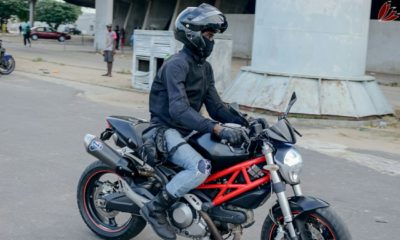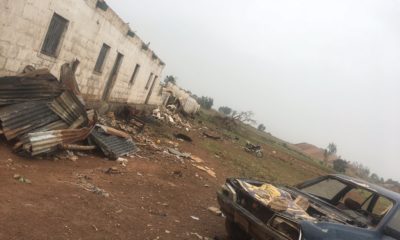Features
Osisiye Tafa: The Last Time I Grew My Hair Out
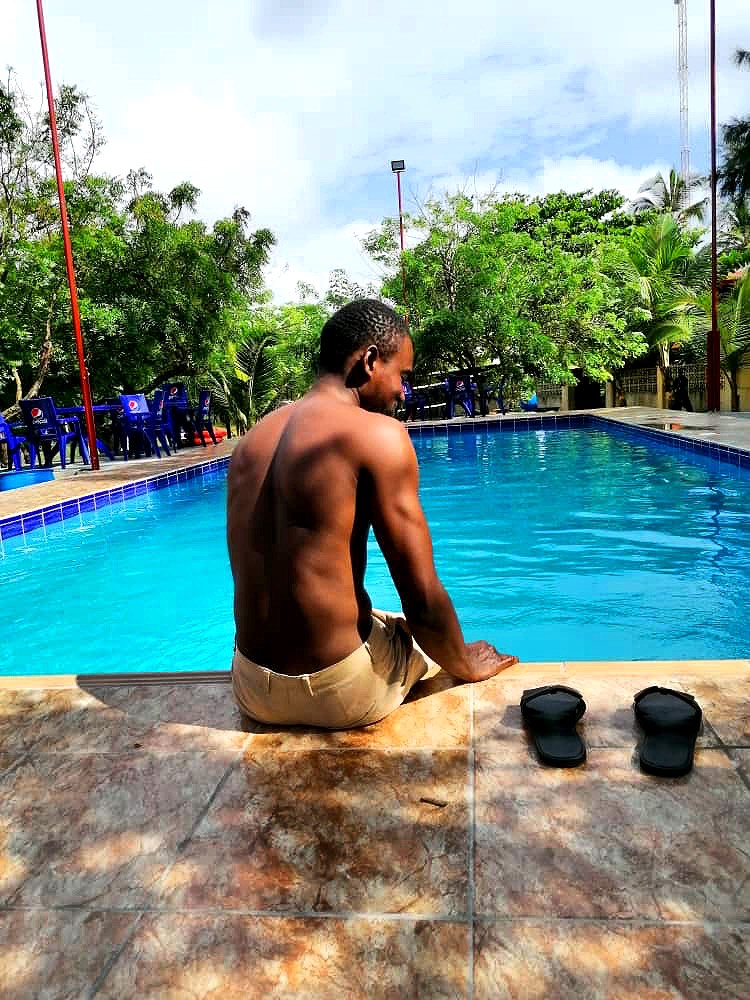 I have never seen so many military men in my life. There are all sorts of checkpoints, and not the kind you find in Southern Nigeria, where one rickety officer stands beside your car and asks, “Oga, anything for the boys?”. No, these are military affairs, arranged just like a movie set.
I have never seen so many military men in my life. There are all sorts of checkpoints, and not the kind you find in Southern Nigeria, where one rickety officer stands beside your car and asks, “Oga, anything for the boys?”. No, these are military affairs, arranged just like a movie set.
There are sandbags to barricade the road. By the corner is a soldier sitting on a 250cc motorcycle, the handlebars modified with an AK-47 mount. The soldier is menacing, his hands on the handlebar, ready to give chase. There is a ram tied to the barricade, because the locals have to pay homage too. Soldiers in camouflage with leaves sticking out of their helmets are all over the place, a practiced, alert indifference to their swagger.
The practices are still the same as the South though. At every stop, the driver squeezes a crumpled note into the soldier’s greasy palm before we are waved off. At one point, a soldier points at me and motions for me to come out.
“Let me have your phone.”
“Sir?” I hand it to him.
“Do you know why I seize your phone?”
I didn’t even know it had been seized. “No, sir.”
“Go away and stand there. Tell me when you know. Foolish boy.”
I stand some distance away from the checkpoint and look at the fellow occupants of my car apologetically. I hope they understand that I do not mean to delay them.
Another solider beckons to me.
“What happened?”
“The officer seized my phone.”
“Are you from this side?”
“No.”
“Were you pressing it?”
“Yes, but I was not taking pictures.”
“You are not supposed to use your phone near a checkpoint. Sometimes people take pictures and post all sort of rubbish lies against us.”
“Thank you, sir. I will apologize to him.”
I return to the soldier.
“I am sorry, sir. I did not know. I was not using my camera. I am sorry.”
“Look at this foolish boy. Villager! Do you know I can break this phone?”
“Yes, sir. I know you can.”
“Get out from here! Villager! Shebi you dey go North-East? They will drill you there!”
He hands the phone back and ends the exchange with a few more choice insults.
I continue to Yelwa Village, where my host has left a motorcycle for me. My destination is the Ngel Nyaki Forest Reserve. An old man who knows the location of the house in the mountains hops onto the pillion and we start our journey up the Mambilla Plateau to the Nigerian Montane Forest Project, where I will be staying.
During the ascent, we reach a point where the path turns sharply. I press on the front brakes to steer the bike, but the bike’s front brakes are not working, so we crash into a heap of earth. After that, I surrender the motorcycle to the old man—he is adept at manoeuvring the path—while I walk behind and take photos.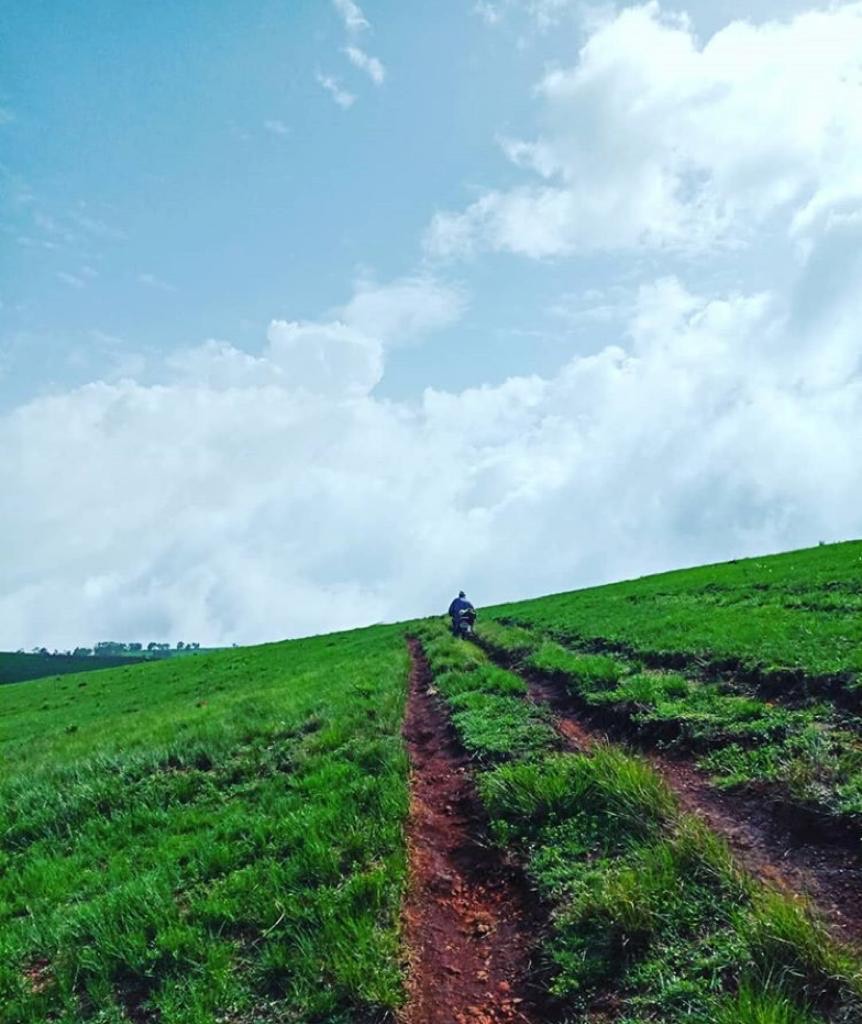
We encounter no humans throughout the ascent, just peaks, plains and the constant mist. The Mambilla Plateau is the coldest place in Nigeria, and daytime temperature hardly exceeds 25°C. This makes the area one of the 2 locations in Nigeria good for growing tea. Some miles away, in Kakara Town, there is the Mambilla Beverages Company Limited, the only tea production company in West Africa.
As we continue the ascent, the only humans we encounter are a nomadic Fulani family who have fenced off some part of the plateau for their cows and goats. There is a hut made out of dried grass and mud. They will live here for months until the weather changes, and then move on.
We continue for some more meters and arrive at the living quarters of the Nigerian Montane Forest Project. I am given a dusty room, which I set about cleaning. I am shown the kitchen where I can cook my meals. The house has a garden and I am happy to see some red and green bell peppers there. The spicy red vegetables will be much needed in the weather here. The walls are covered with pictures of the endangered Nigeria-Cameroon chimpanzee, the putty-nosed monkey, mona monkey and tantalus monkey—all of them endemic to the region. There are some Forestry undergraduates in the house too; they are carrying out some research. They invite me for a forest walk that will hold the next morning, and then retire to their rooms. In a place like this, no one hangs outside for long; it’s too cold outside for chitchat.
On the morning of the second day, the students come to call me for the forest walk. They are wearing boots and hoodies to brace themselves against the weather, and we walk out into the forest where we hope to spot a mona monkey. We do not see any monkeys but we take pictures atop the peaks with the plateau as a backdrop. The air is clean. I will spend one more day with them, braving extreme temperatures and feeding on noodles and mackerel.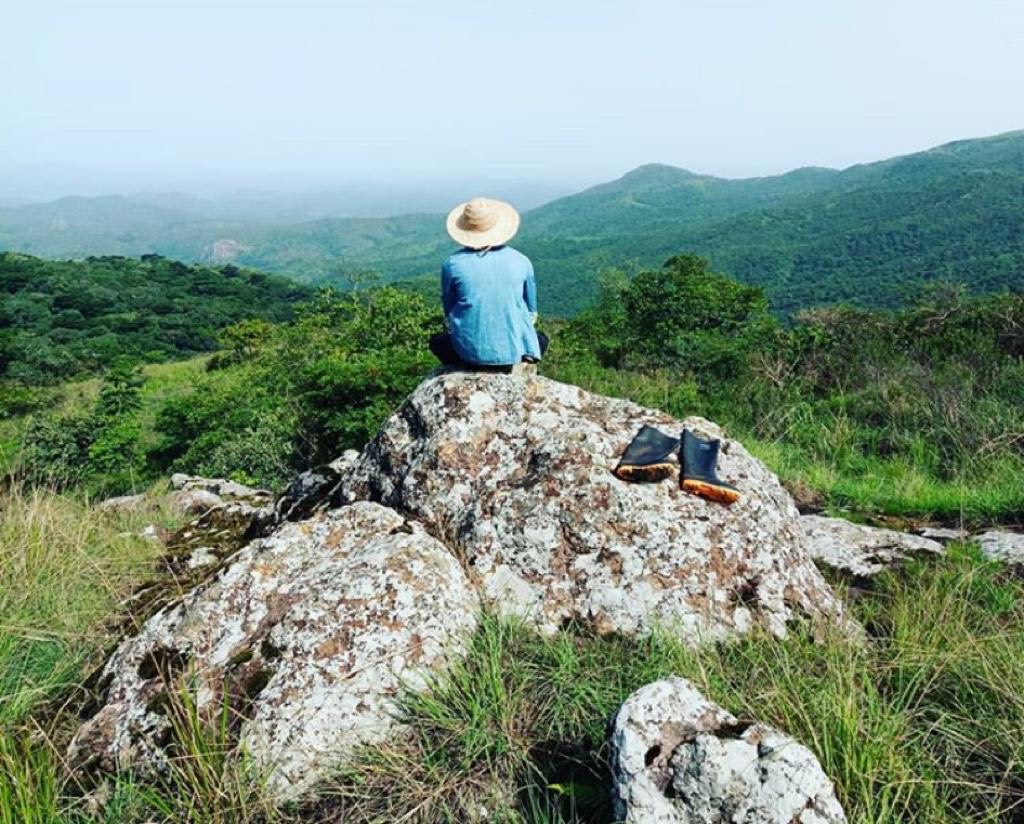
After that, it’s time to leave and I descend the plateau again, take a bus to the Nguroje Local Government Motor Park where I will board a shared cab to the Gashaka Gumti National Park, Nigeria’s largest national park. Beside the motor park is the market, and since the cab is half empty and will take some time to fill up, I wander into the market to shop. I buy some native black soap, twine, unground pepper soup spices and calabashes. As I shop, I notice that the young men in the market are running around, having frantic conversations in Fulfude and the Mambilla language. I see a soldier walk up to a young man and cut off a chunk of hair from his head. I wonder the reason for this and hurry to return to the safety of the cab.
Soon, a soldier walks up to me.
“Remove your cap.”
It is not good to argue with soldiers, so I remove my cap.
He hisses and attempts to shove a scissors into my thick head of hair. I shift his hand away.
“Excuse me?”
“Drop your hands.”
It is not good to argue with soldiers, so I drop them. He attempts to cut my hair again and I shift his hand away.
“Excuse me, what is the problem?” I am bothered at the turn my trip has taken—what makes a soldier want to give me a forced haircut in the middle of the market?
He attempts to cut my hair again, and I resist.
“Follow me,” he says. He walks up to his colleague and talks to him. His colleague points a gun at my kneecap while the soldier attempts to cut my hair again.
I let him. He takes his time doing this, pushing the scissors into the depths of my hair and cutting off chunks, cutting in a clockwise then anti-clockwise motion. I feel hair drop around me but he does not stop. A crowd gathers to watch this show in the middle of the market. I feel something warm on my cheeks.
“Get out,” I hear him say.
I walk away and the driver of the bus walks up to me. “Sorry o. Na those boys dey disturb them. Go barb your hair for there.” He points to a wooden kiosk. “We go wait for you.”
I walk into the wooden kiosk. It is dark and soon my eyes adjust. A soldier is sitting on a wooden chair, getting a shave. He is almost done and when he finishes, I tell the barber, “Please help me barb my hair. Remove everything.”
I sit on a rough wooden chair in the kiosk in the Nguroje Market. There are pictures of 2Pac and The Notorious B.I.G on the wall. I hear the drone of the clipper and feel hair fall over me. I wonder at the lack of agency that exists in this region, and how close to a military state it has become; a town where young soldiers can wake up anytime they like and decide that any male within sight should get a haircut.
The barber is soon done. It is not a fancy affair, as I instructed him not to shapen my edges, a process called ‘friction.’ That is the process that leads to breaking of the skin and presents a room for infection.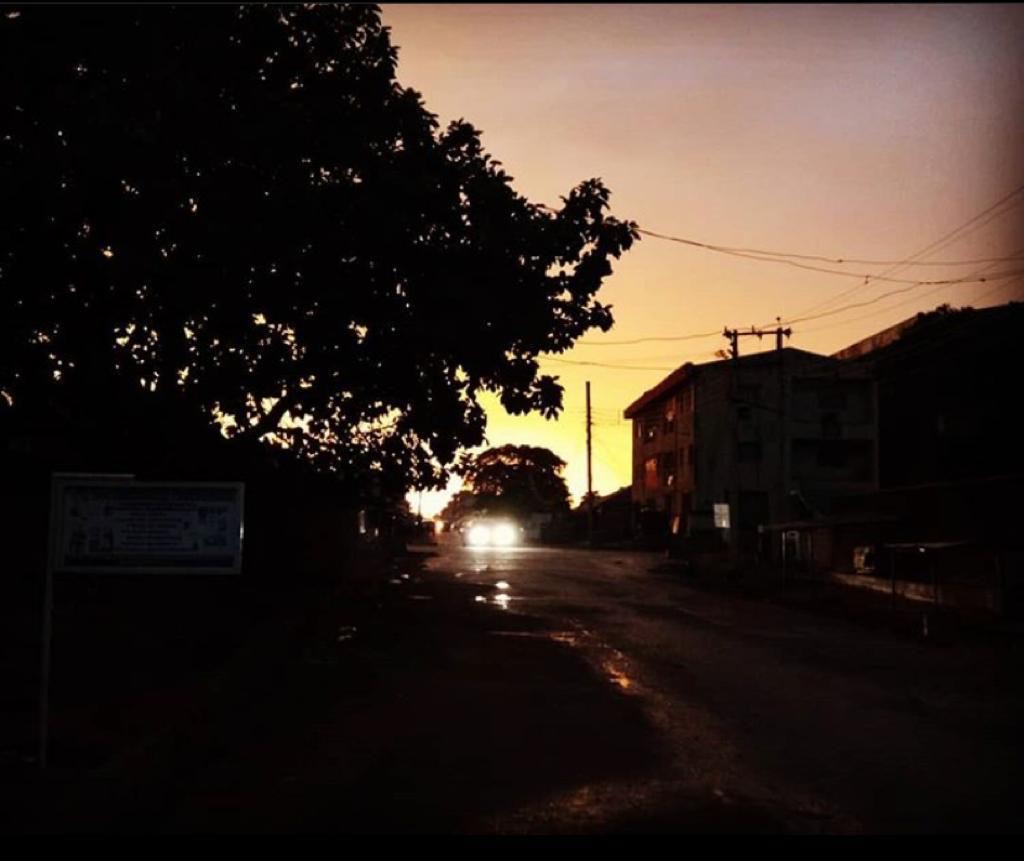
That is the last time I grow my hair out—what is the use in keeping so much hair when a man in khaki can point a gun at you one day and force you to have it shorn? What’s the point in everything?
F**kers.




